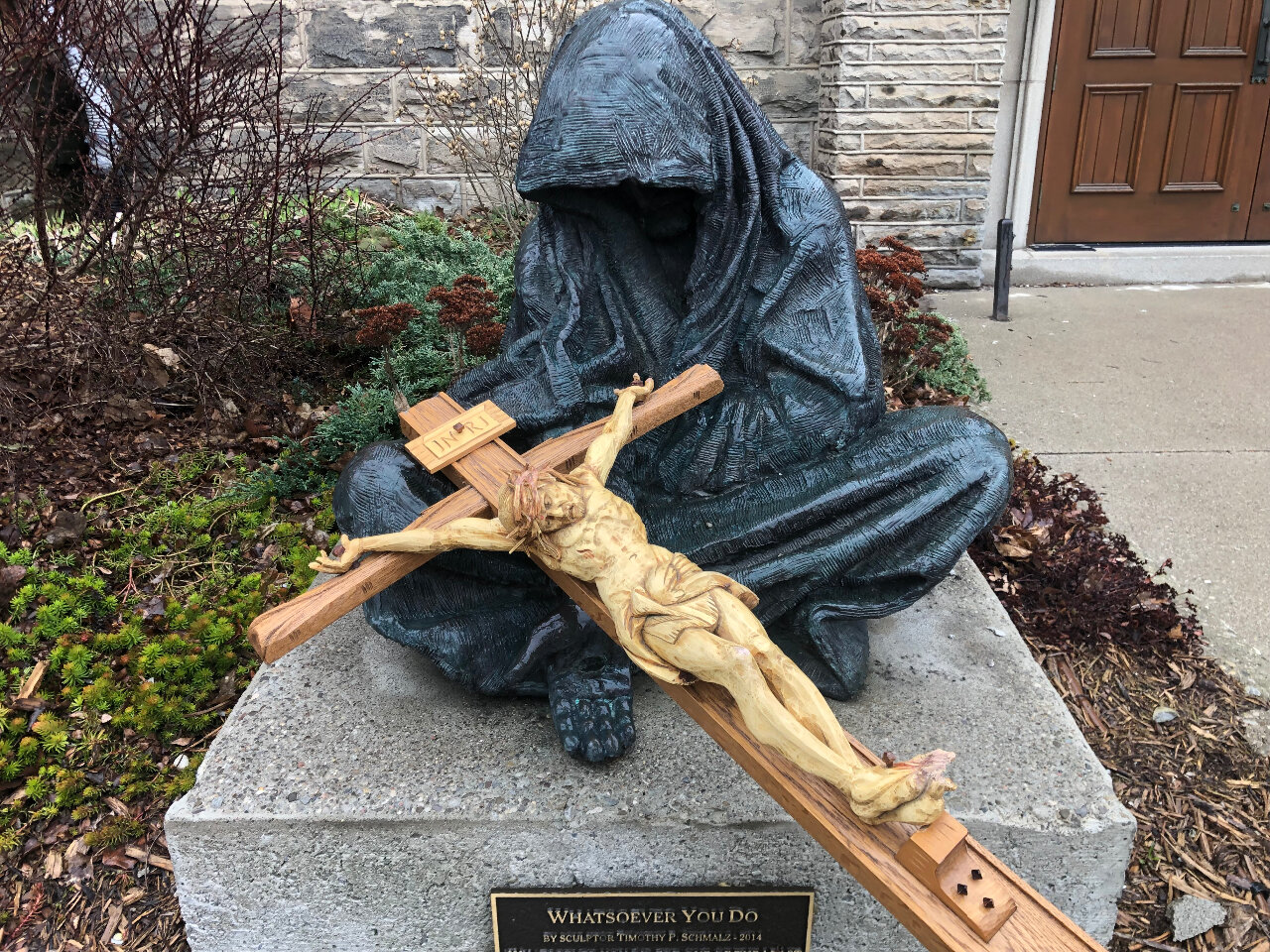
In one of my university classes, we explored and examined systems of power. Hierarchies…in the world, in the church, in communities…systems of power and control…systems of othering people…and as I read about this stuff, it strikes a chord, and it’s way worse than anything that happens in a crowded parking lot.
One thing that I learned in that class and its readings is that we are so comfortable, at times, with the concept of hierarchy, that we are almost lulled into complacency such that we don’t examine it very closely. When Jesus says stuff like “the first shall be last and the last shall be first” that’s a big deal. One author writes that “we are so comfortable with individual and class distinctions that when Paul tells us God makes no distinction between women and men, slave and free, Jew and gentile, we shrug it off as a pleasant metaphor. We are so comfortable with respectability that we find incomprehensible the Jesus who drank and ate with sinners, who treated woman and children as equals, who healed even the undeserving sick. Jesus wasn’t respectable. If we were to confront our culture in the way that Jesus did, what would people think?”
Etiquette – what is proper or the normal way of doing things - takes a back seat when truth is spoken to power.
We're ok with scriptural things like goats and sheep, wheat and chaff…so long as we’re not the ones getting tossed into the fire.
M.D. Ridge says “we humans tend to define and describe things in terms of our own experience, even when our own mental maps are not an accurate guide. When Jesus described the reign of God, he spoke in parables, analogies, stories: ‘The Kingdom of God is like…’ like a man who finds a priceless pearl, or like a woman who tears the house apart looking for a lost coin, or like a father who joyfully welcomes back a wastrel son. The truth is that we won’t really know what it’s like until we’re fully part of it. We know it won’t be about power or respectability or distinctions. And maybe, it begins when we look at the world through Jesus’ eyes. When we do this, the world becomes a different place and we become different people.”
God is standing in the midst of things with us, writes Jake Owensby. "And when God reigns in our hearts and minds, when we throw in our lot with the crazy idea that God is renewing this world, we stand in the midst of things with others while they’re going through whatever life throws at them. We cry with the broken hearted, feed the hungry, sit with the lonely, demand justice for the powerless, treat the sick, and visit the imprisoned." Or more accurately, God is doing it through us and with us, he says.
And then he says this: “God extends [God’s] [Kindom] one act of forgiveness, one act of mercy, one casserole at a time. God does not reign by pushing us to and fro or by handing out rewards and punishments when all is said and done. God reigns by tossing his dignity aside and getting recklessly involved in the chaos and the music, the dreck and the beauty, the horror and the glory of all things human. God reigns by saturating us from within with a love that cannot be staunched. That love does more than fill us and transform us. It spills out from us onto those around us.”
And that love, changes the world. Through hearts that ache for peace and long for justice, that are committed to ending things like hunger and poverty. Hearts that embrace people across the world and across the street and tell them, in word and deed, that they are worthy of love and safety and belonging. Hearts that refuse to allow shame to have a foothold. Hearts that have great compassion with others because they have great compassion with themselves.
I still remember one trip to the grocery store at a peak point during the pandemic during which I saw two masks…one person’s black mask was emblazoned with the words “it goes over your nose” and the other emblazoned equally boldly with the words “love your neighbour.” They both gave me pause. The first if only because I thought, it’s probably better than the muttering under my breath about this stuff that I’ve been known to do, and the second, because it was the summary of the law, really. Love God with your whole self. Love your neighbor as if your own well-being is inseparable from theirs – health, wellness, liberty, security, justice, peace, love, joy – because it is. And who is my neighbour…in a word…everyone.
A new and holy etiquette - a holy normal way of doing things - says that we cannot ignore those in need and accept the conditions that lead to their deprivation.
Feeding. Caring. Advocating. Remembering.
As Owensby says: “Jesus is sending us a personal message using a kind of body language. The suffering bodies of each person on this planet house a soul inhabited by Christ himself. And Jesus takes our response to his message very personally.”

.svg) Address:
Address: